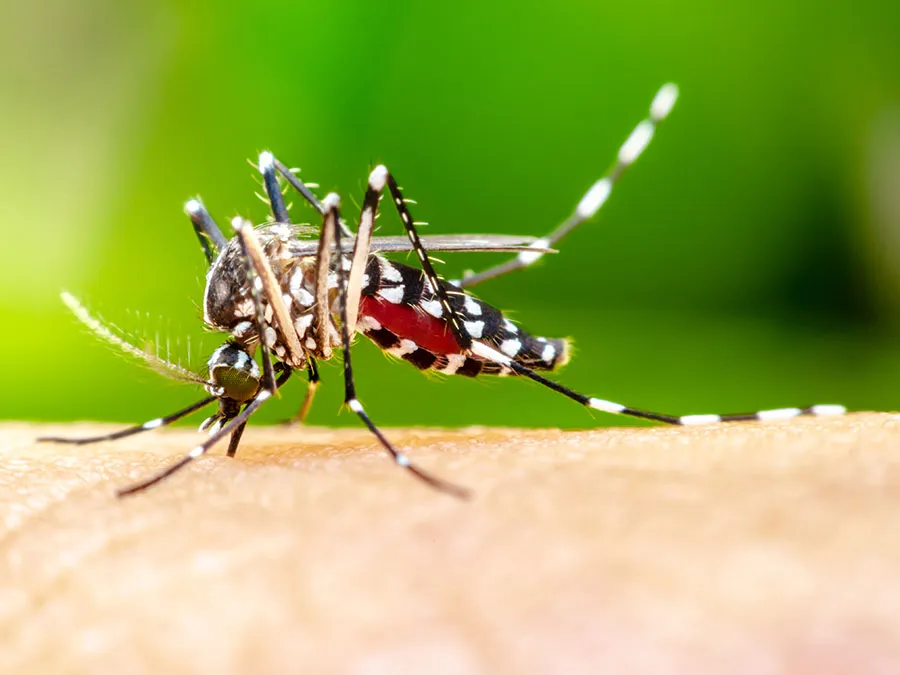While Floridians might enjoy the full sun and snowbird-free traffic of the summer, we must also endure muggy humidity and mosquito bites.
Count yourself lucky if the mosquitos avoid you and you’ve never felt THAT itch. For most of us, it is something we’ll do anything to avoid.
When a mosquito bites you, it uses the protein in your blood to grow more eggs. Those itchy, red bumps are an immune system response to the mosquito’s saliva. Instead of letting mosquitoes ruin any summer plans this year, read ahead to find out how to stop mosquito bites from itching.
Some common symptoms of a mosquito bite include:
- Red bump on the skin that itches
- Localized swelling, pain, and itching
- Redness around the bump
- Most people have a minor reaction to a mosquito bite, but for some, the reaction may be more severe.
- “Skeeter syndrome” (papular urticaria) is a localized allergic reaction to mosquito bites, consisting of inflammation and sometimes fever. It is caused by allergenic polypeptides in mosquito saliva, so it is not contagious.
- If you start to experience headaches, fever, body aches, nausea, chills, or have trouble breathing, be sure to contact a medical professional immediately. This could be the sign of something far more urgent than an itch or redness.
Mosquito Bite Treatment: What Should You Do When You Notice a Mosquito Bite?
The key for mosquito bite remedies is to start by cleaning the bite with soap and water to prevent infection. Ice can be applied to temporarily relieve swelling and itching, and over-the-counter ointments and creams can help reduce itchiness.
The most important thing to remember when it comes to getting rid of a mosquito bite is: do not scratch at it! Scratching the bite site only agitates the venom and increases your histamine response. Over-scratching could also cause breaks in the skin that can leave room for infection.
Antihistamines and anti-inflammatories, such as Benadryl, NSAIDs, and steroids, can help relieve symptoms and ultimately get rid of the inflammation from mosquito bites. Over-the-counter one percent hydrocortisone cream may be needed for intense itching and larger reactions. If there are symptoms of infection, you may need to see your doctor for antibiotics.
How do you prevent mosquito bites?
Although many mosquito bites are harmless, there are times when infected mosquitoes will transfer serious diseases such as West Nile virus, making it even more important to protect yourself from bites this summer.
Wearing an insect repellent with at least 20% DEET is the best way to prevent mosquito bites. Also, be sure to eliminate any areas of standing water around the home that could become breeding grounds for mosquitoes.
Since mosquitoes only need about a bottlecap of water to breed, a good preventative measure is to dump out any flower pots, tarps, or baby pools filled with water. To keep mosquitoes out of the home, screen all windows and doors, and repair any tears in existing screens.
Avoid wearing sweet-smelling perfumes, colognes, and dark colors, and minimize your time spent outside during dusk and dawn as mosquitoes are most active at those times.
If you are concerned about mosquito infestations on your property, reach out to a licensed Heath Pest Control professional for assistance. Click to schedule a consultation.

